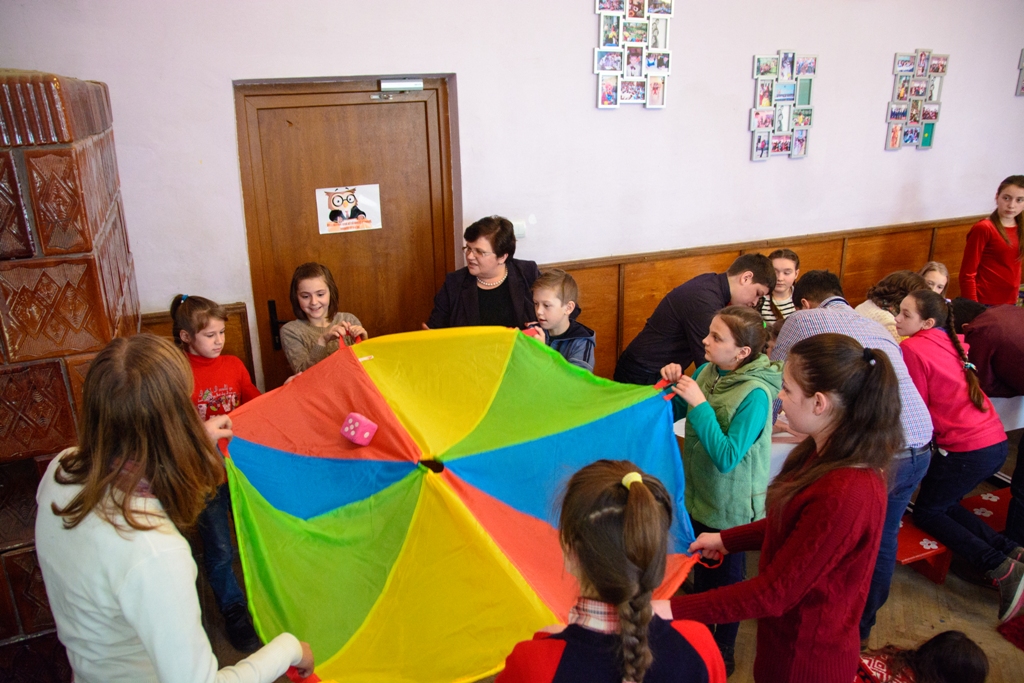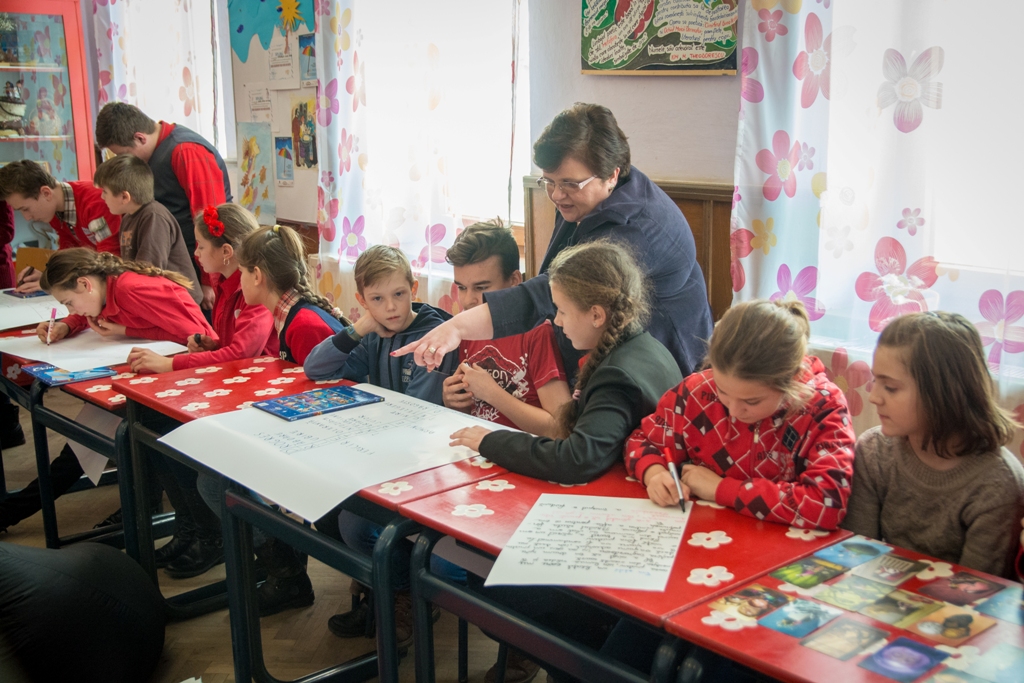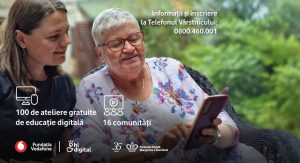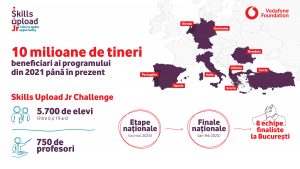The village of Vatra Moldoviţei stretches over 170 square kilometers. Ciumârna village alone, with its 120 households, is 17 km long. It takes the Orthodox Church priest of the village three days to visit all the households on the Christening Days: on the first day, he barely manages to visit 16 households, traveling by sleigh or by carriage. And that happens because the households are scattered wide apart across the gorgeous hilly land of the Bucovina region. Equably scattered are also the five schools of the village, says Daniela Ceredeev, the Romanian language teacher, who had the idea of taking the after school center to the children, instead of bringing the children from the three primary schools and the two secondary schools to the after school classes, running in the building of the former cultural center of the village.
People in Vatra Moldoviţei are not exactly poor. They earn quite a nice living practicing agrotourism, beekeeping and traditional crafts. Only a few of them live on social welfare allowances. However, because households are extremely scattered around, children get together only at school. Winters are very harsh and summers are not too warm either, so villagers make a fire even in July, every two or three days. When they are not at school, village children have nowhere to go, so they have to stay indoors while their parents do their chores in and around the house or work abroad. While at the after school, children have the chance to get together, to talk to one another. They are assisted in doing their homework and things they did not understand in class are explained. Moreover, secondary school students who do well in school join in and help their younger mates with their homework and play and sign along with them, for a change. This is what teacher Ceredeev had in mind in the first place: to give children from the most remote households in the village the opportunity to share in the warmth of the after school center.

With the financial support of the Vodafone Romania Foundation and driven by a huge amount of enthusiasm, the after-school caravan hit the road at the beginning of the school year 2015/2015. A different school every day of the week; between four and five hours of activities every day; 40 volunteers; 730 children; eight months in a row. Anyway, his is not all about figures, but about how children got to learn new things. “They’ve even learned to speak English by talking to foreign tourists who attended egg painting workshops”, says the enthusiastic teacher. Vatra Moldoviţei is famous for its painted eggs and it even has a museum dedicated to the craft. “There was no need to tell the children what to say and what to do. They simply interacted with the tourists naturally and knew instinctively how to react and what message to convey to them. One boy told me at one point: “you know, I’m perfectly capable to speak to them now.” “How so?”, I asked him. “Well, I’d listen to them and answer them in my mind.” As for Math, she used another approach: she taught them how to play Sudoku, a Japanese game, where you have to fill in a grid of three by three squares with figures so as to they add up and give the figure nine. “They were so excited! They asked for a Sudoku contest right then and there!”
Most importantly, the teacher explained, is that the after school initiative tries to show that every child can be an achiever. “We tell them: you’re great at Math, you’re very creative, you’re very well-bred and you treat your colleagues nicely, and we do this kind of evaluation every day at the end of after school hours”, she adds. “Every child goes home feeling proud that he or she did a great job and was appreciated for that. We want every child to feel good and self-confident.”
The caravan took the best volunteers on a tour through 21 counties around the country. They organized flash mobs, sitting down in public squares and reading books. They held afterschool classes for children with Down syndrome from a childcare center and visited foster care homes. They visited Roma and Hungarian communities and travelled as far as to Viscri and Maramureș. Everywhere they went they met with teachers and children and they played with them and taught those many interesting things, all adapted to their level of understanding. At the end of the day they used to discuss about what they had learned during the day. “Children were all eager to tell their thoughts and sometimes they shouted to one another: you’ve stolen my idea! I was amused and I really enjoyed every minute of it!”, Mrs. Ceredeev confesses.
Games, Sudoku and good words of appreciation are ongoing at Ciumâna. On one of the last days of the school holiday, about 30 children, aged between three and fourteen years, accompanied by volunteers, dressed in Snow White and clown costumes, were singing and dancing around the main hall of the afterschool center. At around 13:00, the children left the center. Some were taken home by car by their parents, by the priest or by the teachers, other went home on foot, back to the scattered houses of the 17 km-long village.




